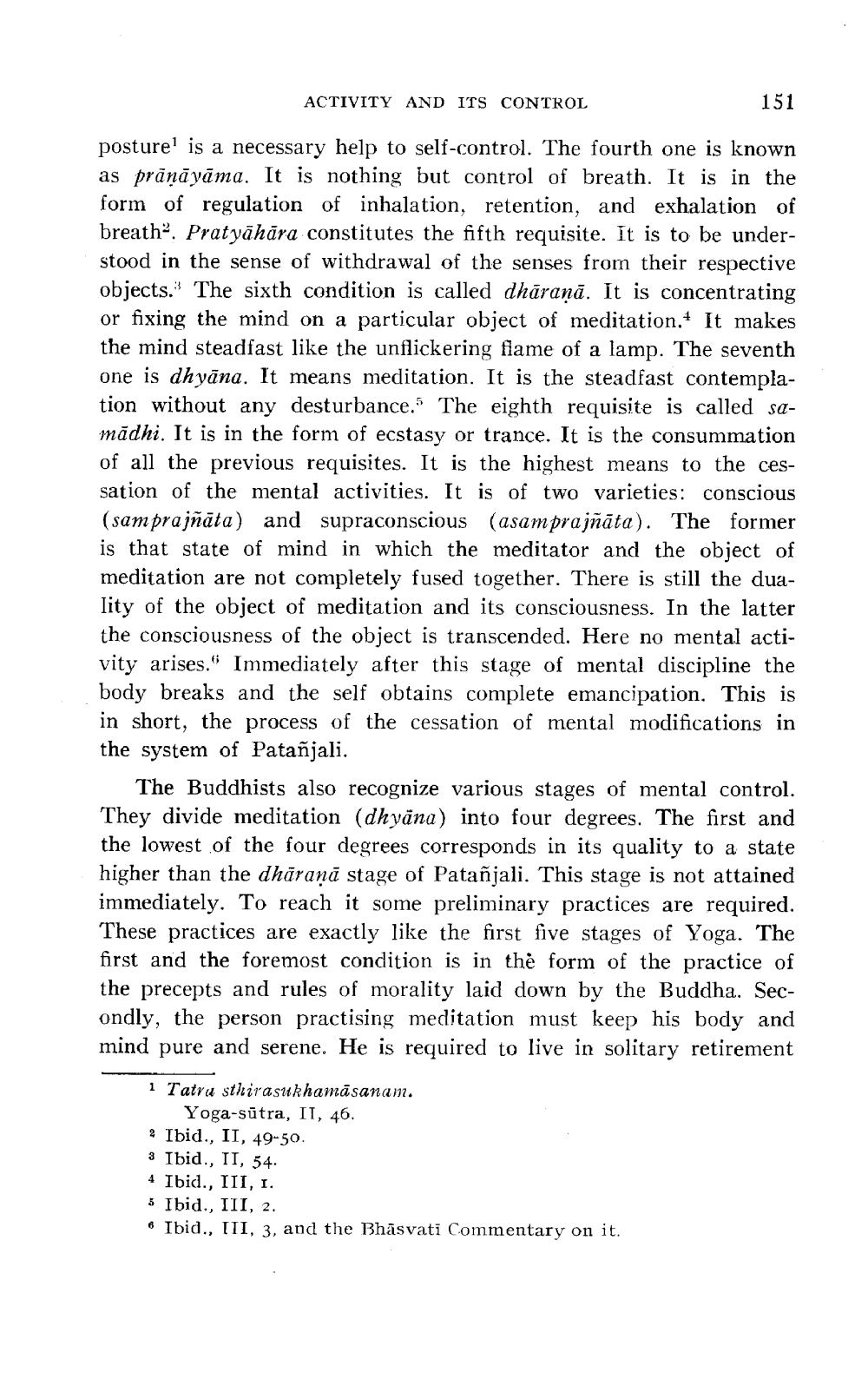________________
ACTIVITY AND ITS CONTROL
151
posture' is a necessary help to self-control. The fourth one is known as prāņāyāma. It is nothing but control of breath. It is in the form of regulation of inhalation, retention, and exhalation of breath”. Pratyāhāra constitutes the fifth requisite. It is to be understood in the sense of withdrawal of the senses from their respective objects. The sixth condition is called dhāraṇā. It is concentrating or fixing the mind on a particular object of meditation. It makes the mind steadfast like the unflickering flame of a lamp. The seventh one is dhyāna. It means meditation. It is the steadfast contemplation without any desturbance. The eighth requisite is called samādhi. It is in the form of ecstasy or trance. It is the consummation of all the previous requisites. It is the highest means to the cessation of the mental activities. It is of two varieties: conscious (sam prajñāta) and supraconscious (asamprajñāta). The former is that state of mind in which the meditator and the object of meditation are not completely fused together. There is still the duality of the object of meditation and its consciousness. In the latter the consciousness of the object is transcended. Here no mental activity arises." Immediately after this stage of mental discipline the body breaks and the self obtains complete emancipation. This is in short, the process of the cessation of mental modifications in the system of Patañjali.
The Buddhists also recognize various stages of mental control. They divide meditation (dhyāna) into four degrees. The first and the lowest of the four degrees corresponds in its quality to a state higher than the dhāraṇā stage of Patañjali. This stage is not attained immediately. To reach it some preliminary practices are required. These practices are exactly like the first five stages of Yoga. The first and the foremost condition is in the form of the practice of the precepts and rules of morality laid down by the Buddha. Secondly, the person practising meditation must keep his body and mind pure and serene. He is required to live in solitary retirement
1 Tatru sthirasukhamāsanam.
Yoga-sūtra, II, 46. 2 Ibid., II, 49-50. 3 Ibid., II, 54. 4 Ibid., III, 1. 3 Ibid., III, 2. 6 Ibid., III, 3, and the Bhāsvati Commentary on it.




